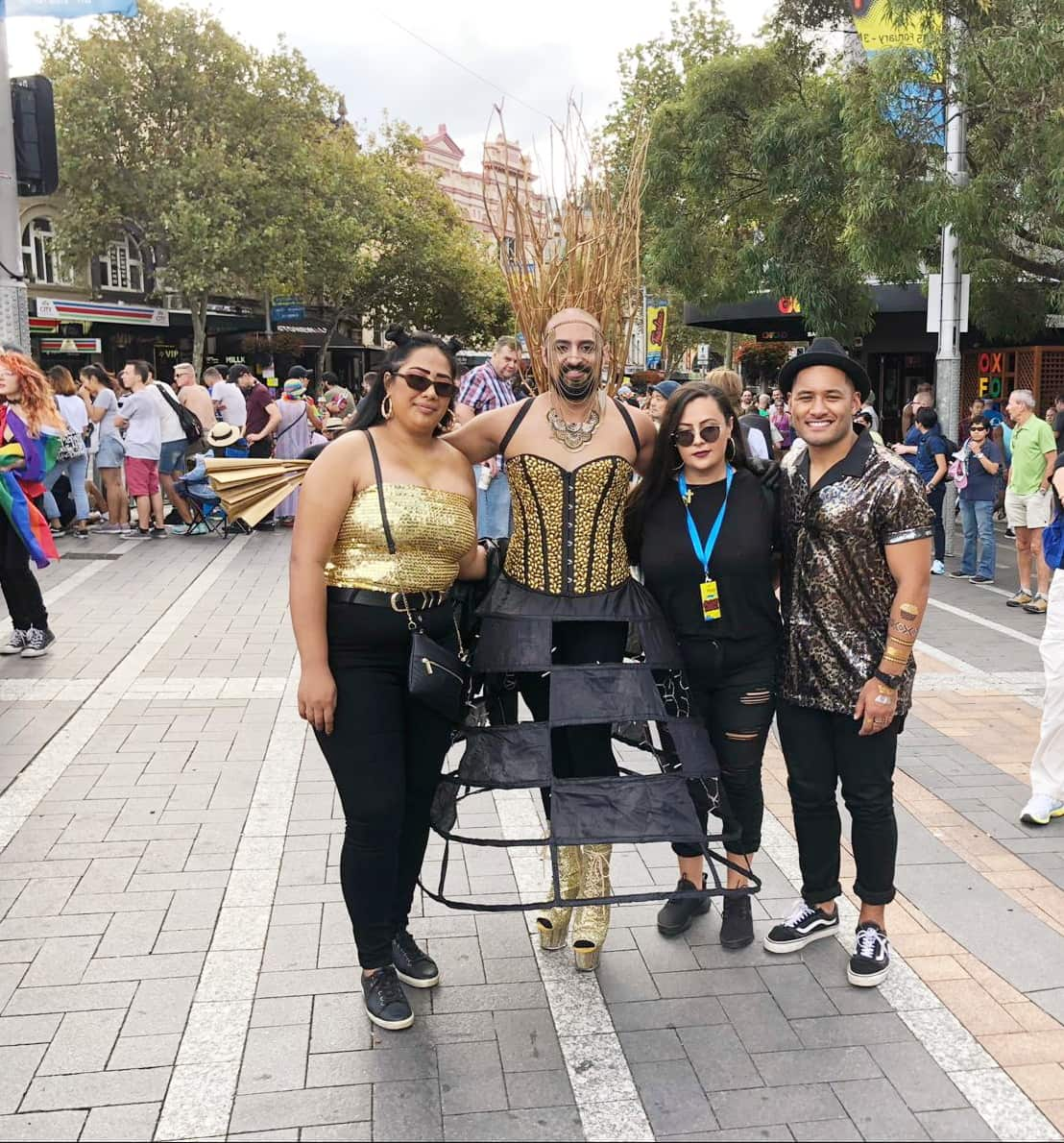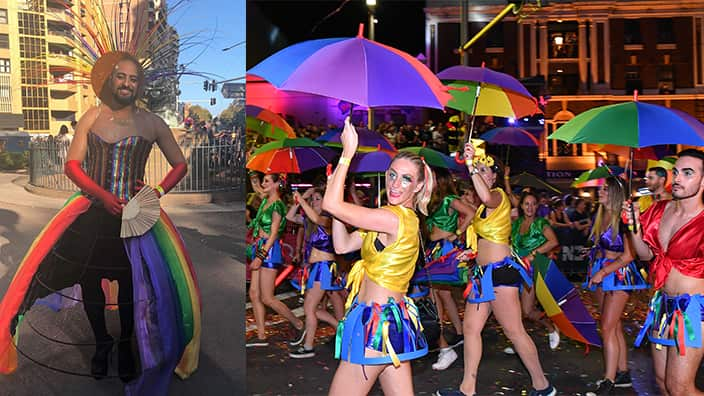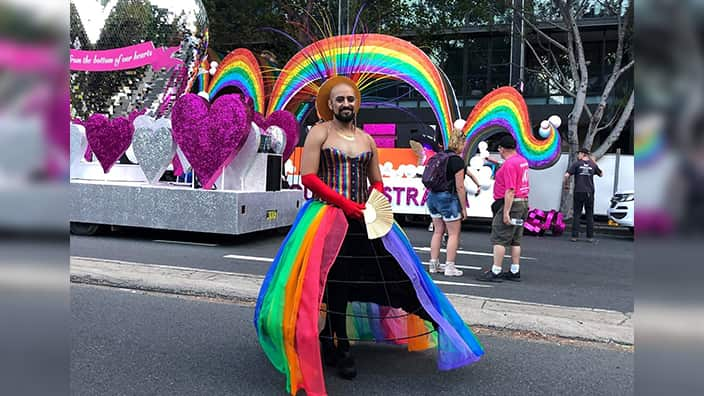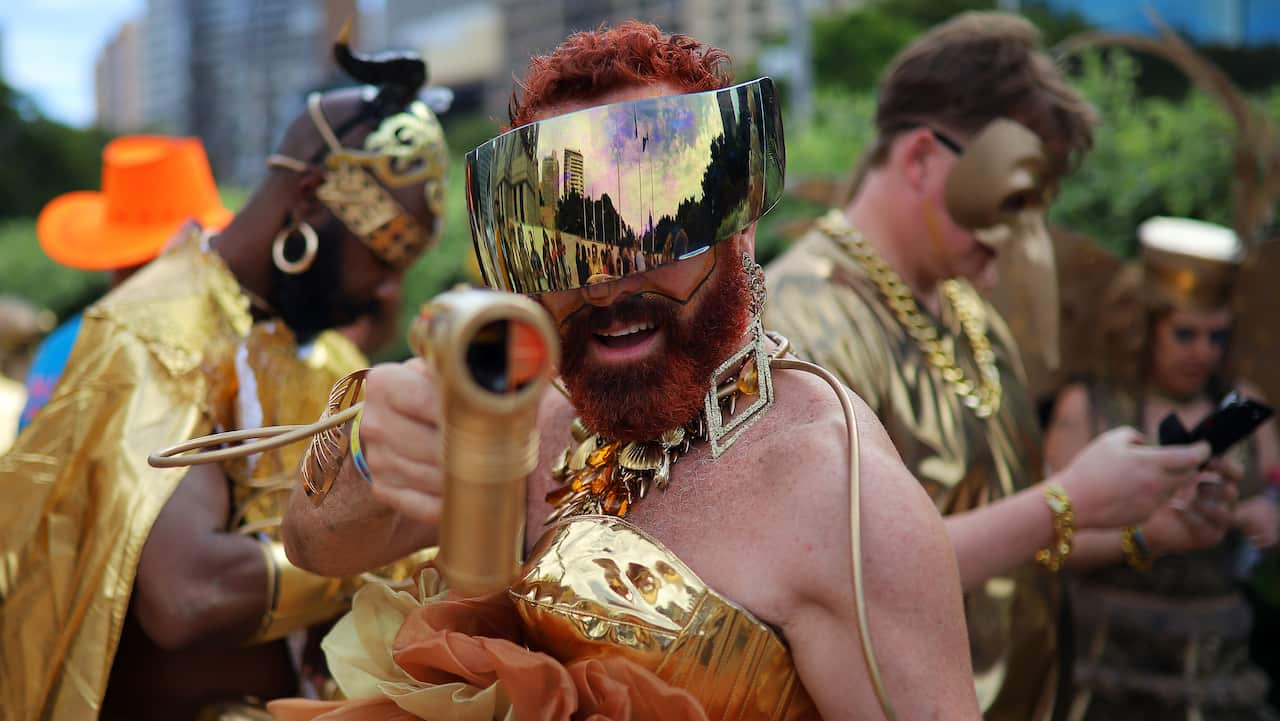“We have Arabs, Africans, Asians and other ethnicities within our group. We also have different faiths and sexual orientations,” says Carlos, an Australian of Lebanese/Chilean heritage who is participating in this years Mardi Gras.
He's the co-founder of the Forbidden Fruits float, and hopes to shine the light on an element of discrimination he says LGBTQI community members of ethnic backgrounds face within and outside of their communities.
“There are a lot of elements of racism, and this also between different races, it's not just Anglo-Saxon guys, it exists on all levels," he told SBS Arabic24.
"The racism that exists within the wider Australian society is sort of done on a smaller scale within the gay community, sometimes it is experienced in an obvious form against your particular looks, for people who look more Middle Eastern or any other ethnicity.
However, Carlos acknowledges there has been a shift in attitudes.
"I've had more experiences in the past but more recently it has changed, it is more accepting, but it does exist, sometimes you can feel it, sort of underhanded, people make jokes about your background, but it exists on different levels, not just for Arabs but for all ethnic communities within the gay community." "There is also this issue of fetishisation, so you become just a fetish because you are a Middle Eastern guy for example, so some people would be interested in you because that is your background, but not interested in you because of you as a person.”
"There is also this issue of fetishisation, so you become just a fetish because you are a Middle Eastern guy for example, so some people would be interested in you because that is your background, but not interested in you because of you as a person.”

Carlos and memebers of the Forbidden Fruits float. Source: SBS Arabic24
In spite of the diversity within the LGBTQI community in Australia, the participation of members of ethnic backgrounds in major public events is still low due, mainly due to cultural and religious barriers.
Forbidden Fruits is giving a platform to people of colour to be visible and deliver the message that it’s okay to be different within your community.

Source: Supplied
'Forbidden Fruit'
The name of the float is inspired by the biblical story of the Garden of Eden - the story of Adam and Eve and the 'forbidden fruit'. Carlos believes this to be a metaphor for the story of their own lives - LGBTQI members of ethnic communities viewed with the same suspicion and curiosity by both members of their own community and wider society.
"We are literally the forbidden fruit, if people move beyond viewing us with suspicion and curiosity as LGBTQI people of colour, but engage with us, we will have the opportunity to open up their minds and change their opinions of the LGBTQI community more widely."
Cultural attitudes
Sydney’s west, known for its densely ethnic communities, offered the least support for the same-sex marriage in the entire nation in the 2017 postal vote.
Carlos believes his mixed race and the access he has to two different cultures helped him pave the way towards more acceptance within the sphere of family and friends.
“When I came out at the age 16, I had a very good reaction from my parents. All my cousins and second cousins on my Lebanese side were also accepting,” he said.
Although Carlos has been attending Mardi Gras since he was 18 and marching in the parade for the past seven years, this year it’s going to be different for him; he’s there to have the voice of minorities out there.
“We are out there being loud and proud about our culture to show people that we exist.”
For him, attending Mardi Gras isn’t about making a scene or for the attention. Carlos finds it difficult to explain the overwhelming feeling of acceptance he experiences during the parade and describes it as an “intense” emotional experience.
Isolation
Coming from a tolerant family, Carlos knows this might not be the case for others who struggle to come out to their families. Some communities may even reject the LGBTQI member leading them to an isolated life away from the loved ones who usually constitute the first support system for a vulnerable individual struggling to express their identity.
“I know my experience isn’t similar to those in my situation. A lot of people don’t have a positive experience when they come out,” says Carlos. What Carlos explains has been echoed within the Arab community, in a previous interview with SBS Arabic24, Ibrahim, a gay Lebanese explains how he is being ostracised by the community for being who he is, he said “I feel I am an Arab, but the problem is that the society I belong to does not consider me to be anything because I am gay. They make me feel as if I am not a human being because in Arab history this is considered a sin and they say “you’ll go to hell”.
What Carlos explains has been echoed within the Arab community, in a previous interview with SBS Arabic24, Ibrahim, a gay Lebanese explains how he is being ostracised by the community for being who he is, he said “I feel I am an Arab, but the problem is that the society I belong to does not consider me to be anything because I am gay. They make me feel as if I am not a human being because in Arab history this is considered a sin and they say “you’ll go to hell”.

Carlos in the 2018 Mardi Gras parade. Source: Supplied
Growing up in a Maronite-Latin Catholic home, Carlos still goes to church every now and then without getting involved in the community fearing rejection on a religious basis, calling himself a “quite religious” person. “I don’t think I’d be accepted in my church if I’m open about my sexuality and I understand the teachings behind it,” he explains.
Black and gold
When you think Mardi Gras, rainbow colours will instantly pop into your head. However, the Forbidden Fruits float is all black and gold this year.
“Black is the traditional colour of mourning. Same-sex marriage is now legalised in Australia but many of us are still in the dark, living in shame and unable to express our true selves, and the gold is to represent the inner truth, the real self, the fearless self that is hidden in all that darkness and only through being out and proud and accepting your self can your real self come out." Carlos says the participants of the float are also feeling for those who were never able to come out in addition to others who had to marry against their will to please their surrounding community.
Carlos says the participants of the float are also feeling for those who were never able to come out in addition to others who had to marry against their will to please their surrounding community.

Source: AAP
He says room for more discussion is all people are asking for in ethnic communities. Many believe the first step is to discuss things without sensitivities, discussing different viewpoints.
“The change does not have to be a dramatic change. Small change and just casual chats are all we’re asking for.”
